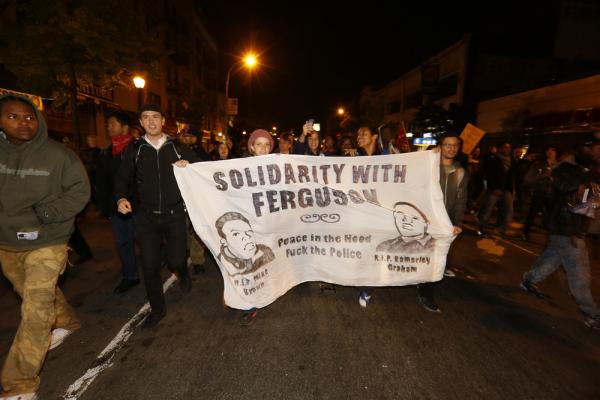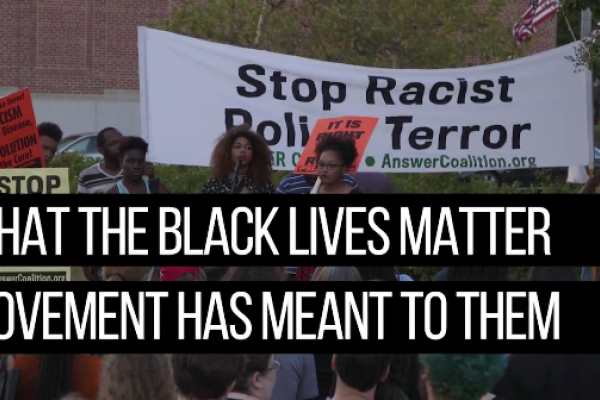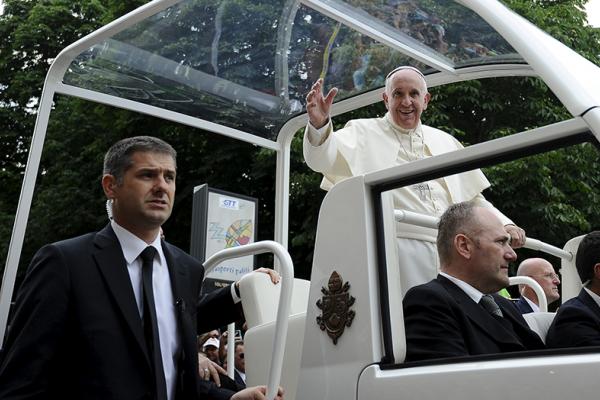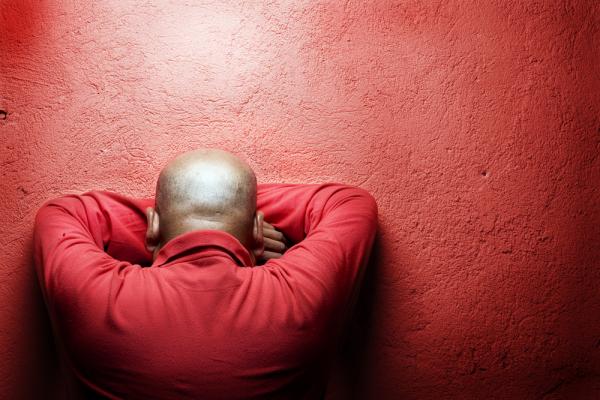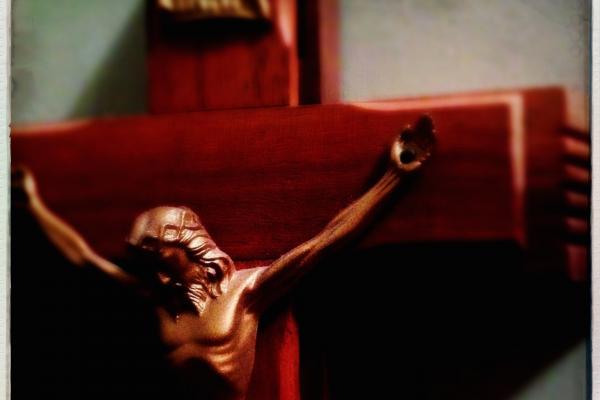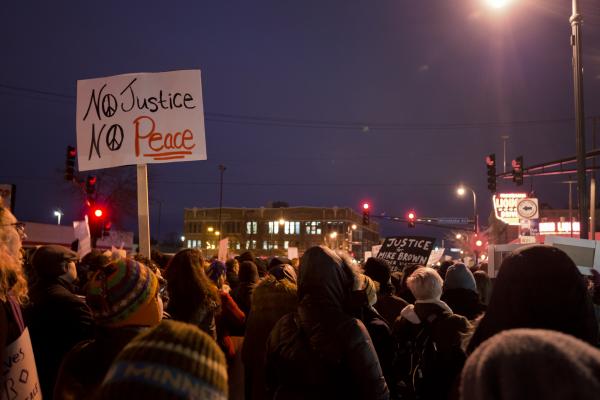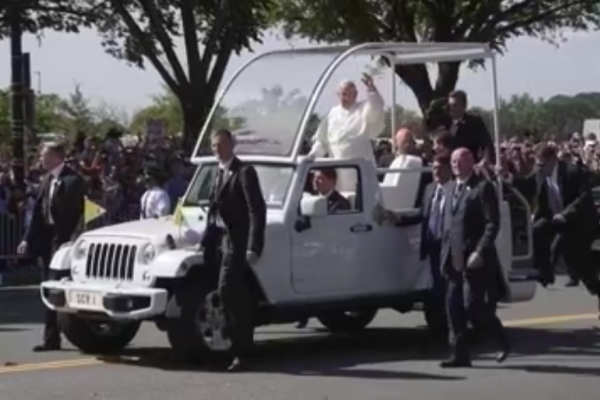One year after the shooting and killing of Michael Brown, #FergusonTaughtMe is trending on Twitter. Activists, faith leaders, intellectuals, and everyday members of the movement have used the hashtag to explain how Ferguson fundamentally altered their racial consciousness. Embedded are a few tweets from Christian leaders who shared how Ferguson changed the way they do faith.
This is basic desire psychology. The thing we won’t share is the thing we most value — and that will provoke desire in others. So what does this have to do with Iran, the so-called enemy of the U.S.? Iran may be our enemy, but its desire for nuclear weapons is, in fact, a perfect imitation of our own. I am not discounting the dangers to U.S. security if nuclear weapons get into the wrong hands. But the U.S. may risk becoming an enemy of peace as well when it blames others for desires they learned from us.
Let me be clear: Iran is no more a child than we are. We are equals, mirror images of each other’s desires for nuclear weapons and global respect. Remember, if Iran refuses to relinquish their desire for nuclear weapons, it’s not defiance — it’s imitation. And yet it may be easier than we think to find a way to make peace with this particular enemy. The path is obvious and available to us: we can renounce our desire for a nuclear arsenal.
Sunday marked the 1-year anniversary of the killing of Michael Brown in Ferguson, Mo. Both in Ferguson, and across the country, the memorials and marches were held to remember those lost to police violence. Here in Washington, D.C., we attended one such demonstration and asked protesters what the #BlackLivesMatter movement has meant to them over the past year.
The Vatican on Aug. 10 announced a World Day of Prayer for the Care of Creation, the latest move by Pope Francis to push environmental issues up the global agenda.
The World Day will be celebrated annually on Sept. 1, in line with the Orthodox Church’s day for the protection of the environment, the pope said in the newly-released letter.
“As Christians we wish to offer our contribution towards overcoming the ecological crisis which humanity is living through,” Francis wrote in the letter, addressed to Cardinal Peter Turkson, president of the Pontifical Council for Justice and Peace, and Cardinal Kurt Koch, president of the Pontifical Council for the Promotion of Christian Unity.
In honor of the one-year anniversary of Michael Brown’s death in Ferguson, Mo., Sojourners asked a variety of faith leaders — Catholics, Baptists, Muslims, agnostics, evangelicals, and humanists — to reflect: How has your faith been challenged, affirmed, or deepened by the Black Lives Matter movement? Has your theology changed? And, most importantly, what are we being called to do?
Here’s what they said.
Seventy years after the U.S. dropped an atomic bomb on the Japanese city of Nagasaki, Pope Francis on Aug. 9 described the bomb as a “lasting warning to humanity.”
Speaking to the faithful gathered in St. Peter’s Square, Francis recalled the “horror and repulsion” aroused by the twin bombings of Nagasaki on Aug. 9 1945, and Hiroshima, three days earlier.
“This (event) has become the symbol of mankind’s enormous destructive power when it makes a distorted use of scientific and technical progress,” he said.
Even as the disciples of Jesus grieved at the foot of the cross, they understood there was work to be done. The work of justice is deeply political and requires an engagement in this present world. With tears in our eyes, we are called to march, rally, petition, sing, dance, create art, and use whatever gifts and talents we possess for the work of justice. The work of justice is deeply theological. Our church communities must foster a faith that gives people room to grow, to stretch, and to ask the tough questions. A grieving people need a theology for such a time as this, a theology that speaks to this present age. White churches, in particular, must end their silence and address the pain of grieving black lives, because the work of justice is collective. Even if you cannot possible understand all the reasons for our pain, you can come alongside a grieving people in love, humility, and solidarity.
From Baltimore to Berkeley, people are asking the question. Do black lives matter? It has been a year and we cannot seem to find an answer to the question. “Of course they do” some people state. “Then why is it so hard for so many to be black or brown in this country?” is the question that follows.
"Maybe if they just pulled their pants up and turned the music down,” is a common enough retort. Then, as I hope you can see, we’re back where we started.
A young man walks into Mother Emmanuel AME Church and nine lives come to a tragic end. The “politics of respectability” cannot save black and brown lives either. You can be a respected member of the state government, a pastor, a grandmother, and none of that will matter. You can be president of the United States of America and it won’t matter. Your race will be a strike against you.
It's a call and response chant started on the streets of Ferguson that has spread across the nation.
"Mike Brown means ..."
"... we got to fight back!"
It rolls off my tongue in a sing-chant cadence, and my hips begin to sway, because I have yelled it as I've marched and rehearsed it in my dreams. It is bitter and sweet. We evoke Mike's name and sway and pledge to fight. I've listened to voices I know and those I don't call and answer in hours of live stream and together in front of court houses and I know, I know in my soul what Mike Brown means.
Mike Brown means ... something more. Something larger than one more young black man shot in his neighborhood.
One year later, Mike Brown means ... something more.
